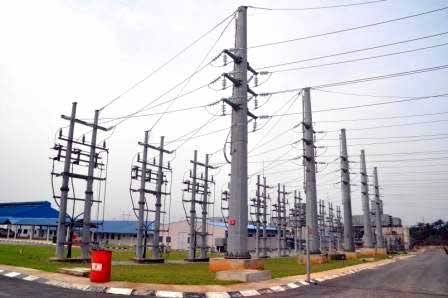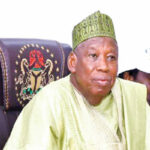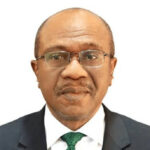
Nigerians looking forward to improved electricity supply may continue to wait as the dismal nature of the power sector may not change any time soon, the Petroleum and Natural Gas Senior Staff Association of Nigeria stated on Thursday.
PENGASSAN outlined several reasons why Nigeria’s power supply situation would not improve in the near future, stressing that this was despite the economic significance of electricity to the country.
The association’s President, Festus Osifo, who disclosed this at the 7th Triennial National Delegates Conference of PENGASSAN in Abuja, also warned the Federal Government against selective implementation of the Petroleum Industry Act 2021.
Commenting on the power crisis in Nigeria, Osifo said, “Although electricity is considered a major determinant of economic development as access to electricity is expected to catalyse nations in the drive for industrialisation, supply to homes and businesses, this has remained abysmal in Nigeria on the backdrop of a flawed privatisation exercise.
“Averaging 4,500 megawatts in the past eight years, Nigerians looking forward to improved electricity supply may continue to wait as inherent challenges may stall power generation in the current.
“Going by industry statistics, not only have gas-related issues affected the country’s generation, dispatch of the generated electricity remains elusive as transmission and distribution bottlenecks are frequently blamed for the capacity to wheel power to end-users.”’
Osifo pointed out that the power sector was currently grappling with a severe debt burden, adding that the poor foreign exchange rate situation in the country was halting the adequate acquisition of tools to run the electricity supply industry.
“With huge debt and equity servicing challenges, operation and maintenance barriers, dearth of new investments, poor credit rating and poor business viability image to investors, the dismal outlook of the power sector may not change in 2023 or any time soon.
“There are also indications that the worsening exchange rate crisis in the country would drastically impede the sector as the majority of tools and equipment used in the sector are dollar based. In spite of these, the consumer is made to pay for the inefficiency of the operators and the regulator,” Osifo stated.
In the oil industry, Osifo, who currently serves as the National President of the Trade Union Congress, explained that the full implementation of the provisions of the PIA would deepen the development of the midstream sector.
He, therefore, urged the incoming government to implement the Act for the benefit of the country and expressed satisfaction at the ongoing rehabilitation of Nigeria’s refineries.
He said, “We will also continue to advocate for the adoption of the NLNG model in the running of the nation’s four refineries when fully revamped, and the creation of an enabling environment for the establishment and operation of modular and private refineries.
“We are happy that the current NNPC management is favourably disposed to such. With the Dangote Refinery, there will be a significant impact on the fuel supply dynamics, including easing pressure on the economy, especially when combined with the ongoing revamp of the three refineries in the country.”
Osifo condemned Nigeria’s rising debt level. He said the N77tn debt stock was alarming and unacceptable.
“This is quite alarming mostly when you compare the cost of servicing this debt to the revenue generated by the government per annum,” he stated.
He said the oil workers were not against the government taking loans, but stressed that borrowed funds should not be used for consumption, rather should be channeled to productive ventures and infrastructure development.
On the crisis in the health sector, Osifo urged the National Assembly to initiate laws that would criminalise the use of public funds by political and public officeholders to procure medical treatment abroad.
The conference was attended by the presidential candidate of the Labour Party in the last general election, Peter Obi, who urged the oil workers to be steadfast as a new Nigeria is possible.





